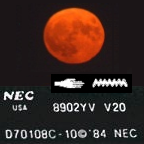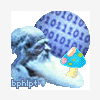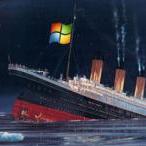Leaderboard
Popular Content
Showing content with the highest reputation on 04/28/2021 in Posts
-
I modded the XP drivers for haswell IGPU to work on vista. aero doesn't work but there is probably a bypass available to force it on. i have only tested on Intel HD 4600 but should work on other haswell based gpu download: https://drive.google.com/file/d/1LVRpJRQd3kn9Jotb6I638vdPjysk30Vn/view?usp=sharing for 64bit vista (XP compatibility should be broken now.) EDIT: I should mention there is no setup, You have to use Device Manager to install it. EDIT 2: I also forgot to mention it should show up as "Intel Haswell Graphics GT2" or something similar. This is normal. EDIT 3: Supported CPU list below2 points
-
WinXP X64 is based on the Server 2003 kernel (NT 5.2), so you need the Server 2003 version of the hotfix if you are running XP x64. If you need any version of the KB968730 hotfix, look on Thehotfixshare site.2 points
-
I suspect it's time to read the last rites over the Microsoft Update and Windows Update web sites. As I said earlier, I'm surprised that they haven't been completely taken offline by now! AFAIK there's nothing left now served by them which is still in support. What do you mean by "the catalogue is empty"? Do you mean that if you put a known existing KB number in the search field and search for it, you get no results? The screen grab you posted is quite normal until you do a search for something.2 points
-
@dmiranda : If a HTTPS "proxy" is being involved, then check in Serpent 52 that: "Tools -> Preferences -> Advanced -> Network -> Connections -> Settings -> Connection Settings (popup) -> Configure Proxies to Access the Internet" is set to "No proxy" ; the default setting in a new/clean profile is "Use system proxy settings", i.e. the proxy configuration inside IE8 is being used for Serpent 52, too...2 points
-
The poster corrected it in the later post of the thread. I can confirm the last sigcheck version supporting XP is 2.30, and it does *not* support SHA-2 signatures (I think it just calls system functions), which is displayed as ????????.2 points
-
I can confirm that version 2.30 does work in XP! Here's its output after scanning the July 2020 wsusscn2.cab file I scanned before on Windows 10 with version 2.80. As you can see, it's quite different. Whether this is SHA-2 problems I don't know, but it doesn't mention it, which 2.80 did. Microsoft Windows XP [Version 5.1.2600] (C) Copyright 1985-2001 Microsoft Corp. D:\Users\Dave>e: E:\>cd dump folder E:\Dump Folder>sigcheck -i wsusscn2.cab Sigcheck v2.30 - File version and signature viewer Copyright (C) 2004-2015 Mark Russinovich Sysinternals - www.sysinternals.com E:\Dump Folder\wsusscn2.cab: Verified: Signed Catalog: E:\Dump Folder\wsusscn2.cab Signers: Microsoft Corporation Status: A required certificate is not within its validity period when verifying against the current system clock or the timestamp in the signed file. Valid Usage: Code Signing Serial Number: 33 00 00 01 F3 07 55 2B 7B A6 03 AD 7C 00 02 00 00 01 F3 Thumbprint: 8C0FB087D6EB137F3FEE3AFA56F168FCA5224830 Algorithm: SHA1 Valid from: 21:18 20/03/20 Valid to: 21:18 30/09/20 Microsoft Code Signing PCA Status: Valid Valid Usage: All Serial Number: 61 04 35 45 00 00 00 00 00 3F Thumbprint: 4BAEA1454B8D5DC845BDE7A2D9754FABC221267C Algorithm: SHA1 Valid from: 18:42 20/09/18 Valid to: 00:28 10/05/21 Microsoft Root Certificate Authority Status: Valid Valid Usage: All Serial Number: 79 AD 16 A1 4A A0 A5 AD 4C 73 58 F4 07 13 2E 65 Thumbprint: CDD4EEAE6000AC7F40C3802C171E30148030C072 Algorithm: SHA1 Valid from: 00:19 10/05/01 Valid to: 00:28 10/05/21 Signing date: 02:41 14/07/20 Counter Signers: Microsoft Time-Stamp Service Status: A required certificate is not within its validity period when verifying against the current system clock or the timestamp in the signed file. Valid Usage: Timestamp Signing Serial Number: 33 00 00 01 54 B0 93 6E 7C 4C 1C 1A 58 00 00 00 00 01 54 Thumbprint: 7E3F6224A15080E0D17B3B3ED7505E1CD704076D Algorithm: SHA1 Valid from: 02:13 19/12/19 Valid to: 02:13 17/03/21 Microsoft Time-Stamp PCA Status: A required certificate is not within its validity period when verifying against the current system clock or the timestamp in the signed file. Valid Usage: Timestamp Signing Serial Number: 61 16 68 34 00 00 00 00 00 1C Thumbprint: 375FCB825C3DC3752A02E34EB70993B4997191EF Algorithm: SHA1 Valid from: 13:53 03/04/07 Valid to: 14:03 03/04/21 Microsoft Root Certificate Authority Status: Valid Valid Usage: All Serial Number: 79 AD 16 A1 4A A0 A5 AD 4C 73 58 F4 07 13 2E 65 Thumbprint: CDD4EEAE6000AC7F40C3802C171E30148030C072 Algorithm: SHA1 Valid from: 00:19 10/05/01 Valid to: 00:28 10/05/21 Publisher: Microsoft Corporation Company: n/a Description: n/a Product: n/a Prod version: n/a File version: n/a MachineType: n/a E:\Dump Folder>2 points
-
2 points
-
Nothing. It's irrelevant, except for paranoia mongering, of course!1 point
-
I can confirm with both: New Moon and Serpent, I also can not see comments. Hovering over commentarios doesn't reveal anything for me, however I'm able to (right click) inspect element. Sorry, I don't understand the results - could it be the ad blocker?1 point
-
And a 7th possibility could be a power supply that is just beginning to fail. An iffy power supply could cause the same kinds of flaky performance and random issues as bad RAM contacts or disk cable contacts. Cheers and Regards1 point
-
The no ifs/no buts was in point #2 about replacing the SATA cable, not the disk/ssd (which is conditional in point #3). But there are no problems (normally) in cloning the disk to a new one or - better - making an image of it and then deploy the image to a new device, the result will be the old os/install running on a brand new device,no need to reinstalll, of course, unlike the SATA cables that has a trifling cost, the new device will have a cost. The fact that you have CHKDSK autorunning means that you are experiencing some kind of filesystem corruption that could be due to any of: 1) some bad RAM contacts 2) a bad (SATA) cable (again contacts) 3) a bad disk/ssd (for whatever reason, be it "weak" sectors on rotating media or bad cells on a SSD) 4) really bad RAM stick There is of course a 5th possibility, a virus, some other form of malware (but you already scanned your system with no such evidence) or even a driver that from time to time"goes astray". And - only for the record - a 6th one, which I didn't mention assuming that it was already excluded, that is thermal management (the processor, the graphic card and even the SSD or the RAM may overheat and create these semi-random issues). In these latter cases the CHKDSK running is not due to mass storage devices, but rather to the forced reboot after the BSOD (unclean shutdown). jaclaz1 point
-
If you're not using any networked or new Microsoft software does it even matter? Third party developers can still sign their applications with SHA-1 and implement their own SHA-2 support if needed, no?1 point
-
I didn't appear to have KB968730 installed on my machine, so I downloaded it and installed it. It appeared to install OK, and its registry entries are now there, but a system file check didn't reveal any changed files. It should change CRYPT32.DLL. The version in the hotfix is 5.131.2600.5779. When I checked I found that I already have version 5.131.2600.6459, which is presumably why the hotfix didn't do anything! Where would that later version have come from though, would it have been a POSReady update?1 point
-
Same problem with WinNTSetup_x64.exe. I get a different error with the OE version. I could not find the indicated error file.1 point
-
Actually, Windows 8.0 is kinda it's own thing. 1: It has its own NT number at 6.2 (Windows 8.1 is 6.3) 2: Windows 8.1 drivers crash Windows 8 3: im out of reasons lmao1 point
-
I observed that in the process of offline scanning, the cab file is first copied to %windir%\SoftwareDistribution\ScanFile, then the package*.cab files in it is extracted. That once leads to insufficient disk space so I add a deleting operation in the script. The verification of signature seems happen before extraction (confirmation request). If the verification fails (the error encountered by Dave-H), the cab file is deleted. I suggest Dave-H to check whether the package*.cab files did got extracted; yet whether it is extracted or not, I don't know what to check next; I think the mystery hides in the process of WUA API functions, so I pointed to the MS doc site.1 point
-
@dmiranda Do you happen to use a proxy for HTTPS? Maybe you accidentally set Basilisk to use it for HTTP as well?1 point
-
Many thanks, Dave, for your swift reply... As I feared, it doesn't see at all the SHA-2 file signature... I don't exactly know how the tool works, but if it's reliant on OS libs, this is no surprise at all, since XP itself doesn't have support for SHA-2 (You could also test sigcheck-v2.30 on your Win10 partition, if SHA-2 data are printed there, we'll be sure sigcheck uses OS level libs/functions... ) ... However, we are back at square one ; both sigcheck-v2.80/Win10 and sigcheck-v2.30/WinXP do see the SHA-1 file sig (which is the one validated under XP), so the mystery about the July 2020 wsusscn2.cab file doesn't seem related to file signatures... If only a "digital" Miss Marple could help on this...1 point
-
I got mixed reports as to what was the last version of sigcheck to run on XP; this post from 2015 suggests XP support was dropped starting with v2.30, but another post from 2016 has v2.40 as the first one requiring Vista as minimum (???) ... To make matters worse, the official source only links to the most recent version of sigcheck, v2.80, which, as stated, doesn't run under XP ... It is quite hard now to find previous versions of sigcheck, I hope it's OK to mention here that a third party site has archived old versions of the SysInternals Suite bundle, the one entry named "Sysinternals Suite October 26, 2015" does include sigcheck-v2.30-x86 ; can a kind soul on XP solve the riddle for me? And, perhaps more importantly, does it support SHA-2 signatures? Thanks in advance !1 point
-
~OT~ Lolol ... @VistaEX, I'm honored you used my signature line that I once had up here; however, I didn't write that and don't want to disrespect Joan Rivers (or take credit), as she was (and still is) an American treasure (first lady in late night television for example). Joan will live in our hearts forever and her legacy. She was with us from June 8, 1933 – September 4, 2014. https://en.wikipedia.org/wiki/Joan_Rivers I'll admit.. I've not even read over there (eclipse) until now. Perhaps one day another forum would be cool, but for now, I'll stay here as I like it here. Beside I've got too much on my plate to participate in another forum right now with everything I'm (currently) dealing with in real life. So.. I wrote you a signature line and would be happy for you to use it over there; so here - this is from me. "Live each day to the fullest - let not even a moment pass you by. Smile; learn to laugh at yourself and always hold your head up high - be true to yourself." -Xperceniol All the best and always be happy :) ~OT~1 point
-
Version 7.3.1 works just fine with 7 and SP1 , I know there are literally millions of updates' fans here , so I installed a quick rollup update pack with all of the most popular updates "windows6.1-kb3125574-v4-x64" just for you ! And all is absolutely good with "Show in On-Screen Display" ON , "On-Screen Display support" ON too , shows FPS just fine , no glitches , nothing. Oh , and the framework is 4.5.1. Perhaps you need to remove the newer framework ? I dunno . I cannot attach screenshots 'cause my monthly limit is up. Perhaps I should try with Vista too ?1 point
-
1 point
-
1 point
-
Welcome to MSFN. If this issue only occurs at a limited number of websites, then those sites might possibly require TLS 1.3. Firefox 52.9 supported TLS 1.2 by default, but also had optional support for an early draft of 1.3 (roytam1’s browsers have better support for 1.3 though). To activate this option in Firefox: https://www.ghacks.net/2017/06/15/how-to-enable-tls-1-3-support-in-firefox-and-chrome/1 point
-
Thanks for posting! I’m not a Webroot user and not sure exactly when they posted system requirements listing nothing older than Windows 7, but it must have been rather recently. Good to know that 9.0.29.62 works on Windows 6.0.6003 with or without extended kernel! If you are registered at the Webroot Community, by all means post a question there about support for XP/Vista. As you probably know, there is no known way to install SHA-2 support on XP. Webroot has reportedly been signed with SHA-2 exclusively since 9.0.27.64. “However, installation to Windows XP and Server 2003 is still possible using installers that are only signed with SHA-256.” The version on your XP system dates back to late 2019. Are its definitions being updated without problems?1 point
-
@max-h this installs 7.6.7600.256 for XP and Vista http://download.windowsupdate.com/windowsupdate/redist/standalone/7.6.7600.320/WindowsUpdateAgent-7.6-x64.exe http://download.windowsupdate.com/windowsupdate/redist/standalone/7.6.7600.320/WindowsUpdateAgent-7.6-x86.exe1 point
-
here. https://www.nathanbar.net/xp/1 point
-
Thanks, tried that but no difference at all here.1 point
-
I have that same problem if I enable windows XP automatic updates. Disable windows XP automatic updates (set to never check for updates), reboot the system and try again.1 point
-
Unfortunately it doesn't work, I get a date error in the certificate (0x80072F8F), and when I try to go to https://www.update.microsoft.com/v6/ClientWebService/client.asmx, in IE8 I get a certificate error.1 point
-
Yeah, I've got the very same message as everyone else... I guess it's over, guys...1 point
-
MS/W Update is also broken on Windows Vista SP2 (with or without SHA-2 code-signing support): I think this time it's for good... EDIT: @daniel_k just beat me to it...1 point








